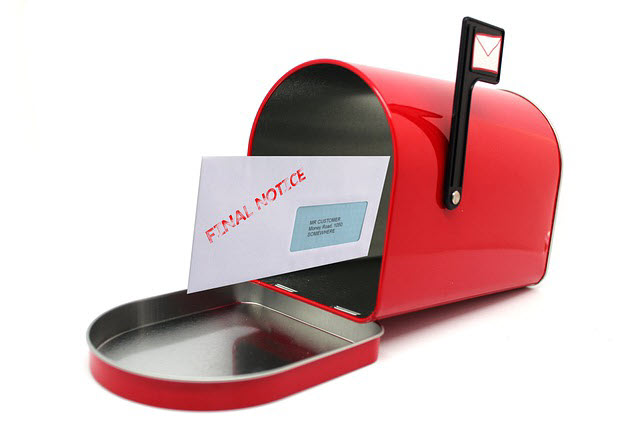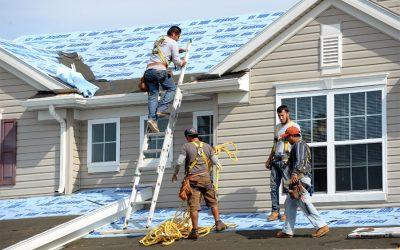
The new “C” word, coronavirus, has caused disruptions so different, so enormous, that it’s left most investors and landlords scrambling to keep up with constantly-evolving changes to how we do business.
For landlords, COVID-19 is not only creating the problem of mass unpaid rents, but also confusion about how to respond. The traditional avenue of starting the eviction process has closed to many landlords, and many others want to offer more flexibility to their renters than usual, given the unique crisis.
As you digest the constant flurry of memos, emails, and texts and faxes about the evolving situation, here’s what landlords and property managers need to know about lease agreement breaches during the pandemic.
Status of Evictions Around the Country
Unpaid rents are nothing new, right? Except none of us have ever seen them on this scale before.
In an effort to put the brakes on the speed of contagion, millions of Americans find themselves out of work. Many not by choice, but by mandate. That leaves many landlords wondering how they should respond – and how they can respond.
First and foremost, note that there is no blanket nationwide suspension of all evictions. However, the CARES Act did place a moratorium on both evictions and foreclosures at properties with government-backed mortgages, for 120 days (March 27 through July 24, 2020).
For landlords with properties financed with an FHA loan, or a mortgage backed by Fannie Mae or Freddie Mac, that means two things. They can’t evict defaulting tenants for 120 days, and they themselves can’t be foreclosed on during that period.
However, that doesn’t apply to most landlords, as most conventional mortgages are designed for owner-occupied properties (house hacking and kiddie condo loans notwithstanding).
The CARES Act also suspends evictions for Section 8 landlords and those taking the low-income housing tax credit (LIHTC).
Many cities and states have issued blanket suspensions on all evictions however. For example, the Los Angeles City Council approved an emergency plan this past week to temporarily halt evictions and create a citywide rental assistance fund. Arizona’s Governor Ducey issued an executive order on March 24 temporarily placing a moratorium on evictions for those impacted by COVID-19 for up to 120 days.
And this list is growing longer and longer.
Civil Courts Closed
But even in those cities and states that haven’t announced a moratorium, many have closed civil courts. That means landlords can file a motion to start the eviction process, but can’t schedule a rent court hearing. The result remains the same: stalled evictions and no legal recourse if tenants default.
Here’s a quick refresher of the eviction process, for reference:
- Before an actual eviction (lock-out) takes place, there are measures to be taken.
- A proper notice must be sent to the renter as prescribed by state law.
- Waiting period must pass
- Summons and complaint are filed in court
- Hearing is scheduled
- Judgement and possession is granted
- Appeal period of time must pass
- Submit paperwork for eviction (actual lock-out)
- Sheriff serves the eviction
- More required time must pass and… finally… the lock-out.
So what should landlords do, if their tenants default on rent?
How Landlords Should Approach Unpaid Rents & Evictions
First, keep your cool. Don’t panic, and don’t react emotionally to your tenants if they contact you to let you know they lost their job or work hours, and cannot pay rent. It sounds elementary, but it’s essential if you want to think long term.
Second, create a plan for the event of multiple rent defaults simultaneously. Start with the following steps:
- Check with your mortgage company about mortgage deferment or forbearance. Find out the ins and outs should you find yourself in need.
- If you find yourself strapped by rent defaults, consider negotiating a payment plan with your lender. You can potentially spread the next few payments over several months.
- Did you collect the last month’s rent in advance? Allow your renter to use it to cover all or part of the next month’s rent. Remember to sign an agreement with your renters about this, to make it official and create a paper trali. Most likely this was a term in the lease. Anytime you change a term in the lease, you must get it in writing!
- Do not apply the security deposit toward the rent balance. It exists to protect you against property damage!
Most importantly, take each tenant on a case-by-case basis. Some are going through real hardship. Many have made good renters for a long time. For these, work out payment arrangements, and remain as flexible as you can.
Others will inevitably try and take advantage of this crisis to try and avoid paying rent, even if they’re still earning. You know who your reliable and unreliable renters are. I have learned to let them talk more than me. It is a great way to get information. Don’t argue; once an argument ensues, you will inevitably loose your footing.
For any irresponsible renters, start the eviction process even if you can’t complete it right now. Send the formal eviction notice. File the motion in court. Keep track of all communication. Get as far along in the process as you can, because eventuall the court doors will open again.
After all, this COVID-19 pandemic won’t last forever!
(article continues below)
What About Other Lease Violations?
Unfortunately, if the courts in your jurisdiction remain closed, you have few immediate options for enforcing the terms of your lease agreement.
If you find renters conducting illegal activity (e.g. dealing drugs), contact the authorities. Keep all police records.
The same goes for domestic abuse issues. Many states and jurisdictions have requirements on how to properly handle a domestic abuse situation. Know and understand your state’s directives on this. Send violation notifications and proper notices to evict according to your state’s landlord tenant law.
As soon as the courts open and/or any ban on evictions have been lifted, you are ready and armed with proper procedures in place.
Final Thoughts
Most tenants are fundamentally responsible people, and aren’t looking for a free ride. And most landlords are compassionate people who have their own mortgages and other property-related expenses to pay. We are truly all in this together.
Coronavirus doesn’t discriminate from the rich or the poor, the skinny or the fat, the landlord or the renter. In my over 35 years of experience, I have never seen hate or anger solve a single problem. Quite the contrary.
We all are trying to weather this storm intact. Work with your good, reliable, conscientious tenants as flexibly as you can, to keep them in place with a roof over their head. With your unreliable and troublesome tenants, start the eviction process and simply take it as far as you can right now, preparing for when evictions resume in your area if you can’t complete them currently.
Have you found a unique way or plan to get through this trying time? Please share; your tip can be beneficial to someone else!
























This situation is terrifying for me as a landlord. Though most of my tenants are good people who do everything they can to pay on time. Hoping they continue to do so!
The high unemployment rate is definitely scary all around, for both landlords and tenants. Hoping we see a quick economic recovery!
Except for the irresponsible tenants, some discounts can be given to the tenants so that they don’t leave. Owners should keep in mind that no tenants no money!
Very true D., it’s all case by case based on each unit, the neighborhood vacancy rate, the tenant, and more. Definitely no one-size-fits-all response!
I have a tenant that’s taking advantage of the COVID-19 she has not lost any income they just work remotely. She hasn’t paid rent since September and she has also moved her nephew in he’s staying in a camper behind the house. All this was done without any approval. What can we do
I’m so sorry to hear that Denise! If you can prove she’s continuing to earn income, and that she moved in her nephew, you may be able to evict despite the CDC moratorium. You should ideally speak to an attorney however.